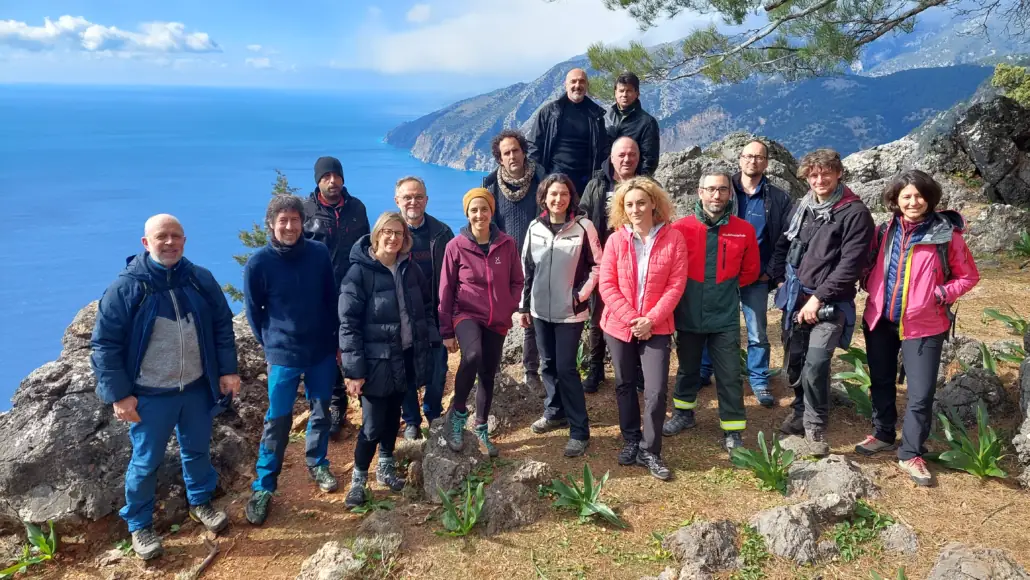MediterRE3: Reducing Greenhouse Gas Emissions generated by Fires in Mediterranean Region

Istituto Oikos leads the MediterRE3 project, which aims to promote fire-smart land management practices. The objective is ambitious: to reduce greenhouse gas emissions generated by fires in 3 Mediterranean forest nature parks (Luberon, France; Prokletije/Komovi, Montenegro; Samarià, Greece).
2022 wildfires and GHG emissions
The year 2022 was a true annus horribilis for fires in Europe. The 2709 fires recorded by EFFIS (European Forest Fire Information System) are more than three times the average of the last 17 years. The increase in fires is certainly one of the main consequences of rising temperatures. However, huge masses of CO2 emitted by the burning of forests, shrublands, abandoned pastures and agricultural areas in turn contribute to increasing the effects of global warming. EFFIS estimates that total emissions from forest fires in the EU and UK in 2022 were 9 megatonnes of carbon, equivalent to those emitted by 10,000,000 cars in the same period, the highest level since 2007.
Fire-prone landscapes in the Mediterranean
Not only climate change: landscape change also contributes to increased fire risk. For at least seven decades, Europe’s rural areas have suffered two socio-environmental phenomena that have contributed to the increase of fuel in the environment: the abandonment of croplands and rangelands, which favoured the encroachment of shrub and tree vegetation and large-scale forestation plans with fast-growing species, such as pine and eucalyptus.
From fire-prone to fire-smart landscapes (FSL): a workshop in Crete
In the framework of the MediterRE3 project, led by Istituto Oikos (Italy) partners and stakeholders from the 3 target landscapes met from Jan 31 to Feb 2 at the Mediterranean Agronomic Institute of Chania (CIHEAM-MAICh, Greece) in a 3-day workshop to learn and discuss on the topic of fire-smart resilient territories. Experts from Spain (University of Extremadura, Fundaciò Catalunya La Pedrera), Greece (Hellenic Agricultural Organization “Demeter”) and Italy (ETIFOR) were invited to present case studies and best practices already enforced in Mediterranean landscapes to reduce flammable biomass and how to fund them. Improving mosaic landscapes, juxtaposing different land uses, and promoting sustainable grazing were shown as one of the keys to effectively reduce burnt areas. The draft of the document “Building Fire-Smart Landscapes in the Mediterranean Region”, one of the main project deliverables, was presented during the workshop.
Can FSL reduce GHG emissions?
During the workshop, project partner NOA (National Observatory of Athens) presented preliminary results of the outcomes of their study undertaken in the framework of WP2 to estimate FSL effectiveness in reducing GHG emissions. According to the model, the application of FSL management will delay and reduce the projected increases in burnt areas and GHG emission from wildfires especially in Greece and Montenegro.
From theory to practice: kickstarting Landscape Working Groups
The workshop also kickstarted the work of the Landscape Working Groups, which will be in charge of drafting the Landscape Action Plans of the 3 target landscapes with a participatory approach, involving stakeholders from public and private sector. A special focus will be dedicated to the identification of funding mechanisms to support the application of FSL management actions.
